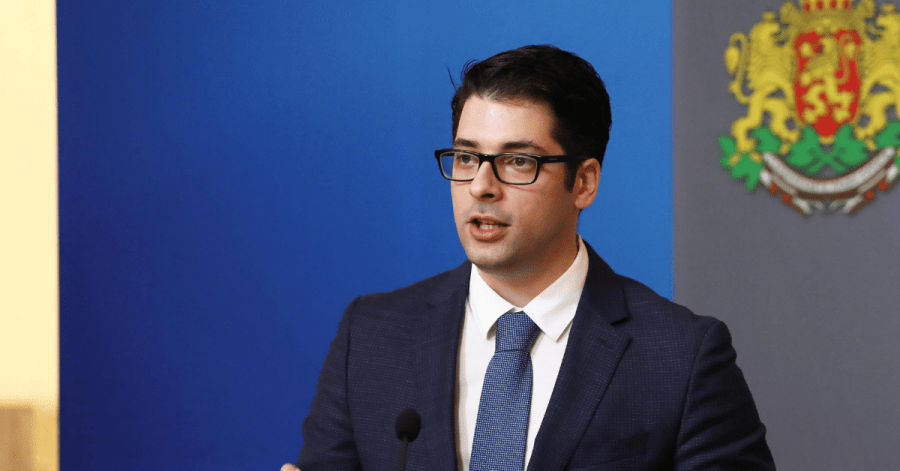The “Next Generation EU” mechanism is viewed by the innovation community as a historic opportunity for the green and digital transformation of European countries, especially in the SEE region. The Recovery and Resilience Facility (RRF) mechanism of the EU which aims to support the member states in rebuilding their economies after COVID-19, has reserved €10.4B for Bulgaria. This amount equals 17% of the national GDP, and more than half of it, or €6B, will be allocated in the form of non-repayable grants.
In Bulgaria, organizations that represent the innovation ecosystem believe in the smart planning of the additional €6B and are actively engaged in the process of improving the final version of the draft Plan for National Recovery and Resilience. MOVE.BG, the think tank platform for innovative solutions and participatory leadership, and BESCO, The Bulgarian Startup Association, are among the ecosystem leaders which pursued the introduction of policies in the best long-term interest of the Bulgarian innovation community and the digital and green transformation of the Bulgarian economy.
“There are many global risks that we underestimate and the pandemic really reminds us of them. Climate change and biodiversity loss are insurmountable challenges if we let them happen. In Bulgaria, for a long time, the political class has not put attention to the need for a green transition and, therefore, it is now coming too fast for some people, it seems imposed from somewhere, which determines their fears of socio-economic risks that may arise,” Deputy Prime Minister in the caretaker Bulgarian government Atanas Pekanov, who is responsible for the finalization of the Plan, said.
The first draft of the Plan for recovery and resilience was presented back in October 2020 by the previous Bulgarian government. The draft didn’t win widespread approval, as it became clear that the proposed measures would not make Bulgaria greener, more innovative, or more resilient. Instead of focusing on energy efficiency, some of the measures included funding fossil fuel projects. Instead of focusing on creating an innovation-enabling environment and supporting young entrepreneurs, the Plan envisioned spending considerable resources on renovations of dorms and facilities.
Local NGOs, business associations, and civic initiatives saw an opportunity to voice their visions about the future of Bulgaria and to participate in the following three revisions of the Plan. It is expected that the latest version of the Plan will be sent to the European Commission for final approval by the end of September 2021.
“It took some time for the breakthrough ideas for transformational measures towards the innovation of the Bulgarian economy that we were promoting to be considered by the government. Many of the ideas that we have proposed and lobbied are part of the Plan now. Hopefully, they will materialize without compromise or delay,” Sasha Bezuhanova, founder and chairperson of MOVE.BG shares with The Recursive.
What can “Next Generation Bulgaria” look like?
In July 2020, MOVE.BG initiated an ad-hoc civil society coalition called Green Restart with the goal to help with expert input in the preparation of Bulgaria’s National Recovery and Resilience Plan. Together with WWF Bulgaria, Greenpeace Bulgaria, and the “Institute for Circular Economy” over the past year, MOVE.BG has created five expert opinion papers, containing 200 recommendations for improvements to the National Recovery and Resilience Plan, and organized discussions and meetings about the future of Bulgaria. Made up of 50 Bulgarian experts in the areas of innovative economy, climate change, energy transition, circular economy, biodiversity, and sustainable agriculture, and startup development, the Coalition created the “Textbook on the Future History of Bulgaria” to present an ambitious vision for the long-term development of the country. The Textbook presents the challenges and the according policy proposals and long-term solutions in seven fields: Innovative Business, Industry 4.0, Skills of the Future, Circular Economy, Energy Transition, Climate Change, Biodiversity.
“The motivation for our grassroot engagement with the topic is the understanding that the Plan is not just an extra budget available but a resource that can support the qualitative transformation of Bulgaria’s economy. To make a smart program for it we need to go beyond the capacity of the institutions to plan it but to mobilize the brightest minds to engage with its definition and future implementation,” Bezuhanova adds.

How does Bulgaria plan to boost innovation?
The fourth revised version of the National Recovery and Resilience Plan, which was presented to the Bulgarian parliament last week, includes 57 investment projects (11 new projects) and 43 reforms (7 new reforms). According to Pekanov, the proposed Plan should strike a balance between measures for Recovery and measures for Resilience. “On one hand, there is a need for short-term stimulation of the national economy, while on the other hand, we need to make strategic efforts to improve the long-term potential of our economy and transform it from one that is resource-based to one that is value-based.”
The last version of the Plan secures multiple instruments for stimulation of entrepreneurial activity such as a one-stop-shop service addressing the specific needs of young innovative companies. Additionally, the Plan foresees the establishment of startup accelerators in seven universities with the aim to allow easy access to research infrastructure.
Another measure is the increase of the budget financing scale-ups with the stamp ‘Seal of Excellence’ from EIC to €118.5M.
A new €140.8M mechanism for investments in VC funds will be established to support startups and scaleups that develop innovative solutions and implement new technologies such as blockchain, robotics, Artificial Intelligence, quantum technologies, Greentech.
The innovation process in the traditional enterprises will be supported with special programs for digitization, energy efficiency, and facilitating infrastructure for collaboration between Digital innovation hubs and the industrial zones. According to information from BESCO, the one-stop-shop for Bulgarian and foreign entrepreneurs and investors would include a roadmap with every step needed for a founder to start a business in Bulgaria, an entirely digital channel for communication with institutions and submitting documentation, and information about investors, events, organizations, accelerators, as well as potential business partners. Moreover, BESCO has shared that the Scaleup Reform would include the option for voluntary pension funds to invest in VC funds at least 5% of their capital, as well as enforcing the Startup Visa, and introducing simplified provisions for setting up a business.
Investments in education represent one of the major pillars in the Plan and it is foreseen that almost €1B will be directed towards the creation of STEM cabinets in all schools, as well as for the development of a national STEM system with regional STEM centers and new laboratories.
Additionally, measures that the book recommended were the introduction of simplified procedures for the production and consumption of energy from renewable sources, and measures for the prevention, sustainable management, and restoration of natural habits and their biodiversity. While the Plan introduces measures for simplified administrative procedures around the process for the generation and consumption of renewable energy for household use only. The Plan also envisioned the restoration of key climate ecosystems in accordance with the implementation of the Strategy for the biodiversity of the EU 2030 and the goals of the European Green Pact.







